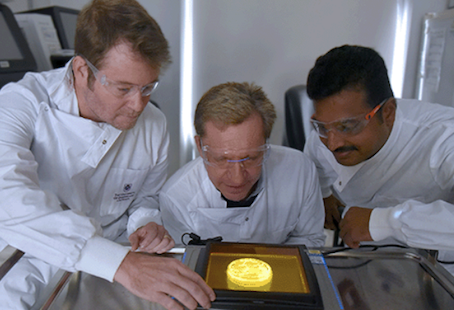
Researchers from The University of Queensland (UQ), Australia, have made a dust from baker’s yeast that can detect COVID-19 and could safeguard communities against future pandemics.
The powdery ‘nanoprobes’ developed at UQ’s Australian Institute for Bioengineering and Nanotechnology (AIBN) are synthetic yeast fragments which can be deployed in environments such as airports, hospitals, stadiums and sewers to detect COVID-19 biomarkers.
Lead researcher and director of the AIBN’s Centre for Personalised Nanomedicine Professor Matt Trau said the yeast nanoprobes can also be integrated into current COVID-19 testing platforms.
The yeast sensor technology can be genetically programmed to detect specific viral strains, such as the COVID-19 variants Delta and Omicron, and give health systems a head start on new and emerging viral threats jumping from animals to people.
Research co-author Dr Chris Howard said the cost-effective and easily scalable nature of the yeast nanoprobes means the technology is an accessible tool for pandemic defence systems.
With yeast being so cheap, this technology could be important for low resource regions of the globe that cannot afford current expensive diagnostic tests.




